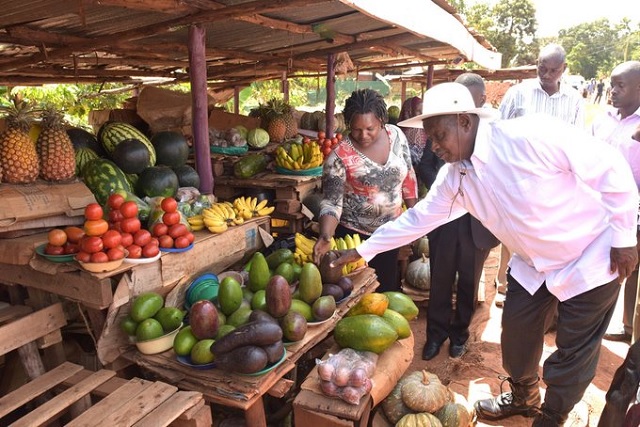
Kampala, Uganda | THE INDEPENDENT | Peasant farmers in Wakiso district have transformed their village savings and loans associations into investment clubs. They are using the clubs to deepen financial inclusions among members and improve their livelihoods as well as undertake investments in real estates.
Noah Bulamba, the Chairperson of Tumbaali Multipurpose Cooperative Society in Masuliita Sub County says his club consists of 238 members organized in eight different groups. The club with 157 women operates accounts in which each member saves for the education of their children.
Bulamba says the group has an investment portfolio of 38 Million Shillings generated from the sale of shares to members and low-interest loans. He adds that members borrow credit for personal investments such as the construction of family homes and businesses, adding that they are now focused on saving money for the future.
This investment club has survived group existential dynamics for the last seven years through extensive training in governance.
Godfrey Kiguliya, the credit supervisor in the Club explains that they sell shares at 5,000 Shillings to members. He adds that regular meetings have enabled them to overcome group challenges and ensure that they work together to alleviate poverty amongst their members.
Charles Kamya, the Manager of Tumbaali Multipurpose Cooperative Society says the group is slowly escaping the poverty trap as livelihoods of members improve.
Jonas Tuyambe, the Chairperson of Uganda Cooperative Alliance, the Apex umbrella body for cooperative Unions in Uganda says budding SACCOs across the country should capitalize on the ten-year tax waivers to consolidate their successes in alleviating poverty.
Tuyambe says “we have benchmarked the success of SACCOs to ask the government to scale up the tax waivers on SACCO operations which started in 2017 to other forms of cooperatives in other sectors such as tourism, agriculture and the service sector.”
Justine Nabakooli, a Community Development Officer in Wakiso district says if supported many SACCOs are capable of deepening financial inclusions in the informal sector where the majority of the population is employed.
“From our work in Kabumba Sub County in Wakiso District, we have observed that integrating the micro-credit schemes with nutrition programmes pay high returns on social transformations at a faster rate in a short term,” she said.
State Minister for Cooperatives Frederick Gume Ngobi says the government committed 40 Billion Shillings to finance SACCOs through the Microfinance Support Center. He says Mwalimu, the teachers SACCOs, for instance, has been capitalized with 17.1 billion Shillings to disburse as loans to teachers.
****
URN
 The Independent Uganda: You get the Truth we Pay the Price
The Independent Uganda: You get the Truth we Pay the Price



